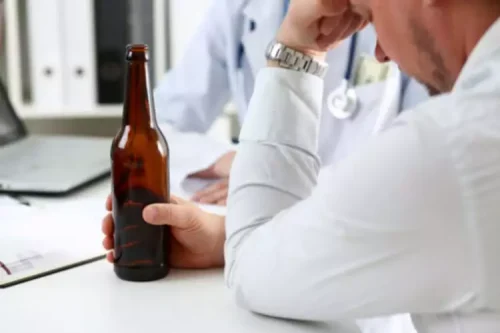
Focusing on your physical health can be a powerful first step in recovery from substance use disorders and moving toward sober living. After successfully detoxing, you may feel better and have greater mental clarity to address the psychological issues related to substance use disorder. With heroin and alcohol, doctors won’t give you these substances to wean you off them.
Detox treatment options
When that substance is no longer there, a person’s body will need to adjust to the withdrawal, which can lead to a variety of detox symptoms. Similarly, at-home detox doesn’t lead to a clear path for a full continuum of addiction treatment. However, qualified, caring professionals can help to set the stage for long-term recovery during drug detox.

What Are The Side Effects of Drug Detox
The term substance “can refer to a drug of abuse, a medication, or a toxin” (APA 2000, p. 191). In this TIP, the term substance refers to alcohol as well as other drugs of abuse. The AMA continues to maintain its position that substance dependence is a disease, and it encourages physicians and other clinicians, health organizations, and policymakers to base all their activities on this premise (AMA 2002). As treatment regimens have become more sophisticated and polydrug abuse more common, detoxification has evolved into a compassionate science. Once you’ve chosen a detox center, you will need to provide the treatment provider with your insurance information, including your identification number, and identifying information like your birthdate and Social Security number.
- There are several medications used to treat opioid withdrawal, for example.
- People who detox at home (and don’t follow it with an appropriate substance abuse treatment program) may be more likely to relapse.
- The dangers of detox can range from physical symptoms to psychological symptoms.
- Prescribed medications like methadone, buprenorphine, disulfiram, naltrexone, and acamprosate can help reduce cravings, alleviate withdrawal symptoms, and prevent relapse when used with proper supervision.
- If someone who is on naltrexone uses an opioid, they won’t experience any euphoria.
Ongoing treatment
People who detox at home (and don’t follow it with an appropriate substance abuse treatment program) may be more likely to relapse. That’s because once the drugs are out of your system, your body won’t be able to tolerate the same amount as before. How long drug detox takes depends on the substance used, the amount of the substance used and the length of time the person has been using the substance. It can also depend on the person’s physical and mental state when they start detox.
Clinical trials
Detox is the first step in overcoming a substance use disorder and living a healthier life. After completing detox, it can be difficult to maintain this lifestyle and not return to the old habits of substance use. To continue to recover after detox, a person will usually undergo additional therapy to address underlying conditions or reasons that may have caused them to use in the first place, like inpatient treatment. Most detox methods are difficult to endure, as the person will most likely experience unpleasant, and sometimes serious, withdrawal symptoms.


The self-help support group message is that addiction is an ongoing disorder with a danger of relapse. Self-help support groups can decrease the sense of shame and isolation that can lead to relapse. In an opioid overdose, a medicine called naloxone can be given by emergency responders, or in some states, by anyone who witnesses an overdose. A medical condition that involves overuse or misuse of a substance such as prescription or recreational drug, alcohol, nicotine, or caffeine. Learn more about substance use and withdrawal, symptoms, treatment, how to cope, and how to help someone going through withdrawal. Sober living environments can provide a safe and supportive space to focus on your recovery.
medically supervised
Detoxing can be a fresh start on the way to establishing healthy goals and reconnecting with loved ones. If you haven’t completed a detox program and are looking for an addiction treatment program, you can ask any medical or mental health professional for guidance. If you have insurance, you may also want to call your insurance company to learn what your individual plan covers before making a decision. You can then acquire a list of treatment programs that accept your insurance in order to narrow down your search. The length of drug or alcohol detox can vary depending on the individual and the substance they are detoxing from.
- Only about one-fifth of people discharged from acute care hospitals for detoxification receive substance abuse treatment during that hospitalization.
- During this time practitioners also seek the involvement of the patient’s family, employers, and other significant people when appropriate and with release of confidentiality.
- At-home detox may be OK if you’re otherwise healthy and haven’t been using drugs for very long.
- A 2011 study found that combining an effective detox program with quality outpatient treatments could lead to significantly improved outcomes for some participants.
- Physicians can also refer you to addiction specialists, therapists, or organizations that provide detox services.
Preparing Entry Into Treatment
This social model of detox involves professionals providing the patient with emotional and psychological support throughout the withdrawal process, but not administering medications to manage symptoms and complications. Most people who complete rapid or ultra-rapid detox report continuation of withdrawal symptoms, albeit at a lower severity. https://ecosoberhouse.com/ Patients who choose rapid or ultra-rapid detox are much less likely to continue on in treatment, such as attending inpatient or outpatient rehab. Because of this, they are less likely to work on relapse prevention, possible co-occurring mental health conditions, and life planning and therefore more likely to experience relapse.
Leave a Reply